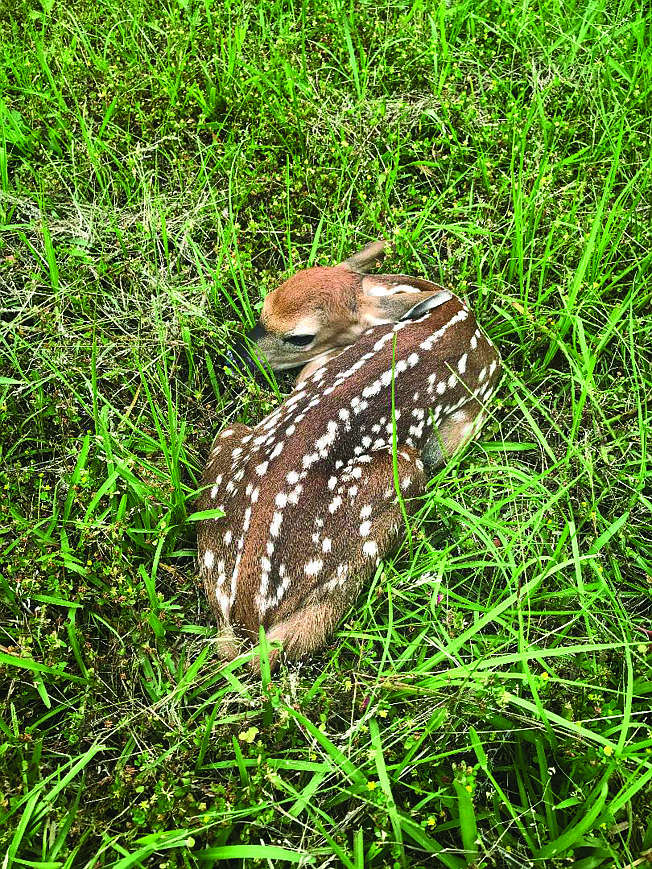A white-tailed fawn looks fragile and vulnerable when found alone in the forest or a pasture.
These fawns weigh only 6 or 7 pounds at birth and it is tempting for many people to want to scoop up the baby and take it home. But wildlife experts want to warn people that the best thing to do is leave the fawn alone because the mother deer is usually close by and will return for her baby.
Spring and early summer are fawn season. Most white-tailed deer are born between the end of April and early July.
When a fawn is born, it is odorless so that predators are not attracted to its location.
The doe often stays away for a while so her scent does not rub off on the fawn or attract predators to the area where the fawn is hiding and gaining strength.
"People want to rescue them but nine times out of 10, the mom comes back for them. And their chance of survival is so much better if they are with their mom," said Tammy Virgin, director of the Hochatown Wildlife Rehab and Petting Zoo in Hochatown, Oklahoma.
"Most fawns you see have a mom close by even if you can't see her. In fact, you'll most likely not see the mom for a good while as she's away feeding and drawing the attention of predators away from her fawn. She's also less likely to return to her fawn if you are close by," Virgin said.
The wildlife center has already received about 10 fawns this year. Volunteers bottle feed them until they are old enough to return to the wild.
Virgin has also received a number of calls from people camping in the area who are concerned about a fawn.
"One family called about a fawn that was wet and shivering near their cabin. I told them just to watch it for a while and they called back later and said the mom was with it," she said.
There are cases where a fawn is orphaned.
Virgin said a sheriff"s deputy rescued twin fawns last spring after finding their mother had been hit and killed by a vehicle.
"They were running on the highway and would have been hit, if he had not brought them in," she said.
If someone believes a fawn has been orphaned and has not seen the mother return after 24 hours, they should contact their local game warden.
It is illegal to keep a fawn without a proper license and can result in a fine up to $1,000.
White-tailed deer do have twins and even triplets pretty often. They also adopt fawns they find in the wild.
Virgin and volunteers are also caring for raccoon kits who were rescued after they were found in the attic of a home.
"They watched and waited for mom, but with tornadoes and severe storms predicted they were afraid the severe weather, cats, or other predators could hurt them since momma raccoon hadn't returned. They are now safe with us, snug and warm in the neonatal incubator, and eating lots of milk every few hours," Virgin said.
Anyone who finds a raccoon kit who's fallen from a tree nest, the best thing is to place them in a box (out of the sun and weather) and wait for mom to come get them. If they are in immediate danger, contact the nearest licensed wildlife rehabilitator.

